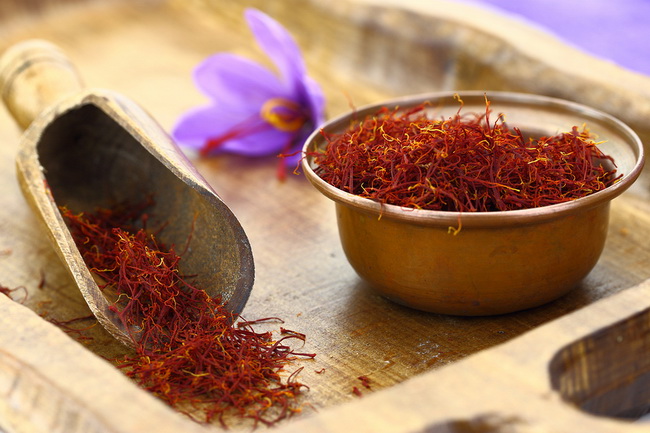- Make It Yourself Lavender Heart-Shaped Bath Bombs!
- 20 Things You Never Knew About “Down There”
- 12 Best Foods For Those Suffering From Arthritis Pain
- 12 Personal Hygiene Mistakes Almost Everyone Makes (Mom Never Told You About #4!)
- 15 Medicinal Plants And Herbs From The Cherokee People
- 12 Mind-Blowing Benefits Of Drinking Coconut Water During Pregnancy
- 12 Outstanding Winter Foods That Won’t Fatten You Up Like A Christmas Turkey
The Power Of This One Spice For Mental Health And So Much More

Photo credit: bigstock.com
Closely related to that super spice turmeric and commonly used in most Persian, Turkish, and Indian cuisine, this spice has been used for thousands of years as a flavor enhancer, a coloring agent for cloth, and an element in traditional medicine. Modern research has backed up many of its claims, including its powerful anti-inflammatory compounds, but more surprisingly, studies have shown that this spice appears to be most effective for many when it comes to regulating mood, improving overall mental health, and lifting depression. It has also been used infighting many different types of cancer.
Which spice can do all this? Saffron.
Like most natural methods, one size does not fit all, and what works for one person many not work for another. However, a recent meta-analysis that looked at years of saffron research discovered that numerous clinical trials show this spice can have a significant impact on mental health issues such as depression. Although the exact mechanism is not fully understood, scientists believe this spice might be effective because of its high antioxidant content.
Saffron has a much lower risk-to-benefit ratio when you compare it to typical pharmaceutical solutions. This means that by adding saffron extract to your routine, you might be able to consume a smaller amount of your medications. Remember that you should never stop taking medications without speaking to your doctor first. Doing so can have serious side effects and complications.
Scientists at Murdoch University reviewed published research on saffron. All studies were randomized, double blind, clinical trials done through April 2014, and they all involved using saffron as a possible antidepressant.
This review covered six studies of more than 230 subjects with clinical depression, who used saffron as a means of treatment. Scientists found that saffron was just as effective in treating those diagnosed with major depressive disorders as the typical antidepressants, such as Tofranil or Prozac. Researchers were surprised that every single study found saffron was just as effective as pharmaceutical antidepressants.
In fact, saffron had fewer side effects than pharmaceuticals (no surprise there). The most common side effects of antidepressants are sedation, sexual dysfunction, tremors, and constipation. The most common side effect of saffron was mild stomach upset. Other side effects were increased appetite, nausea, and headaches.
Continue to Page 2
































